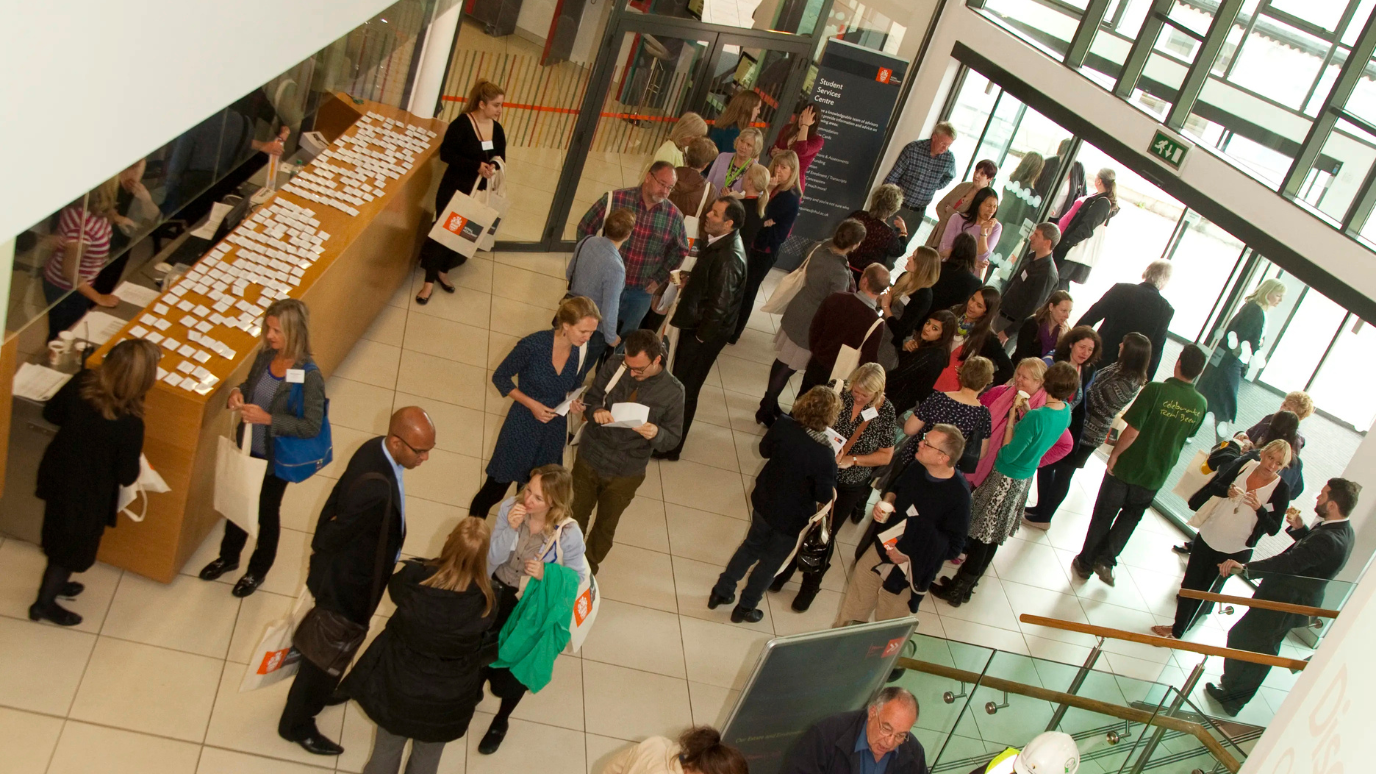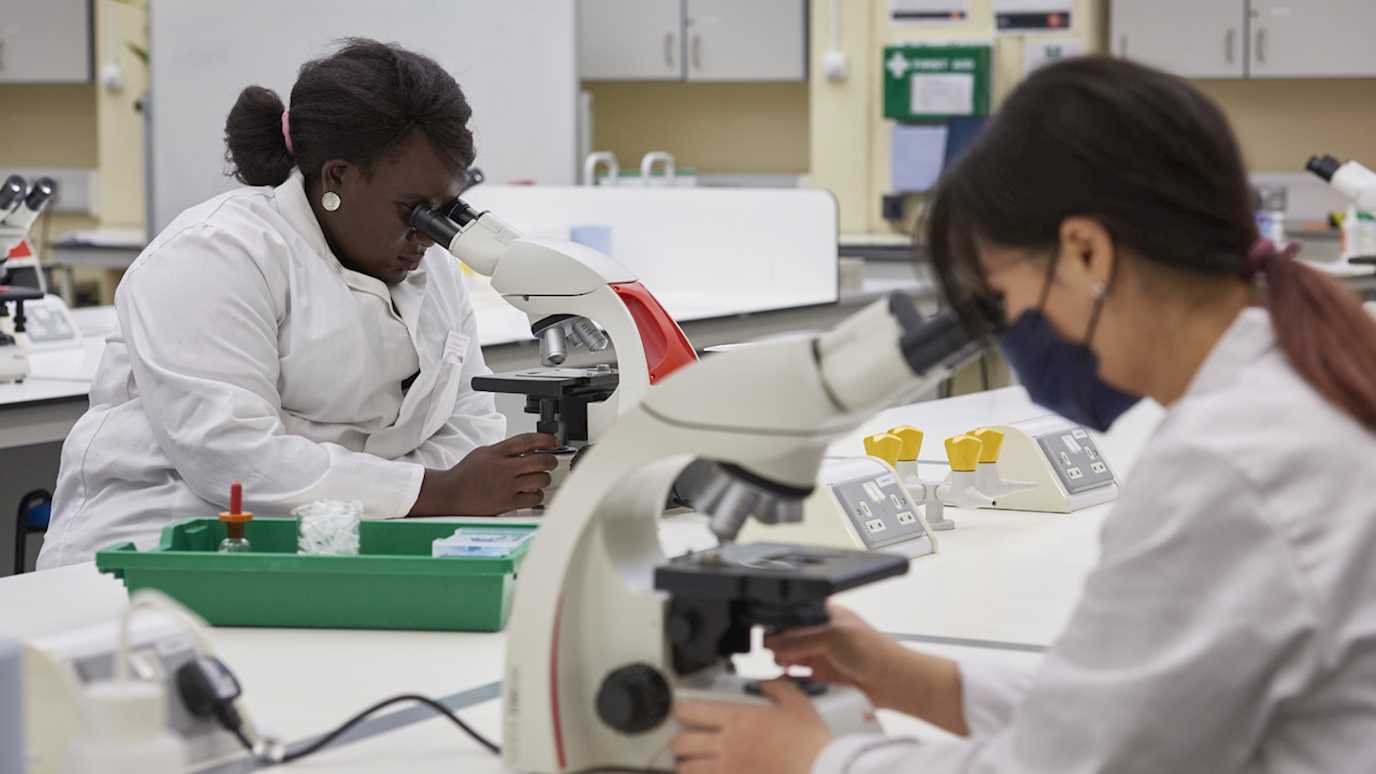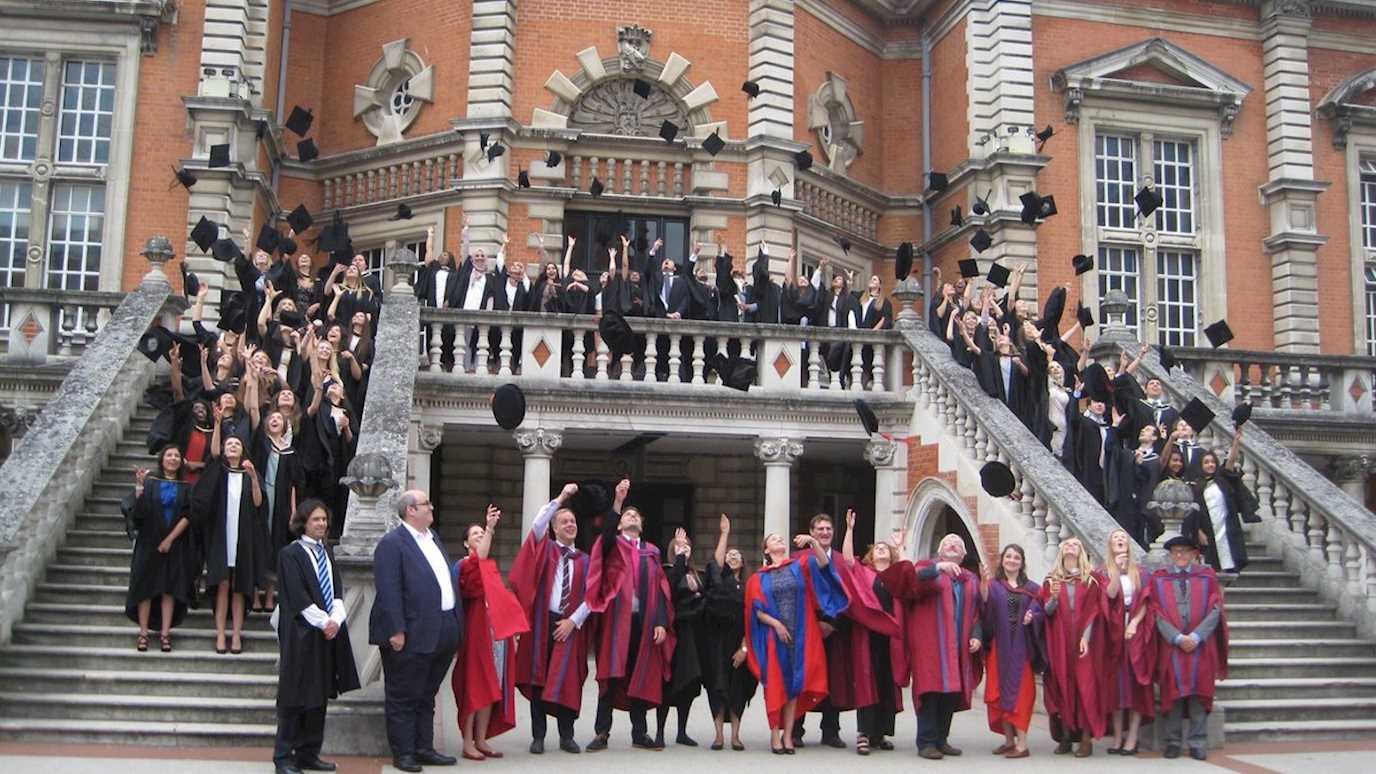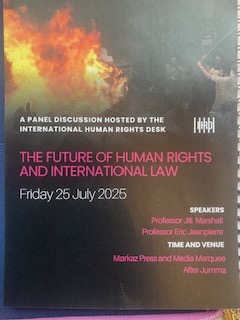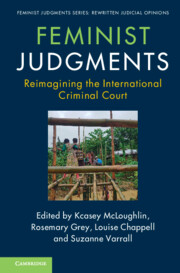From winning the dissertation prize to interning at the UN’s Counter Terrorism Executive Directorate, UNCTED, Josephine shares how her MSc in Terrorism and Counter-Terrorism Studies at Royal Holloway is helping shape her career.
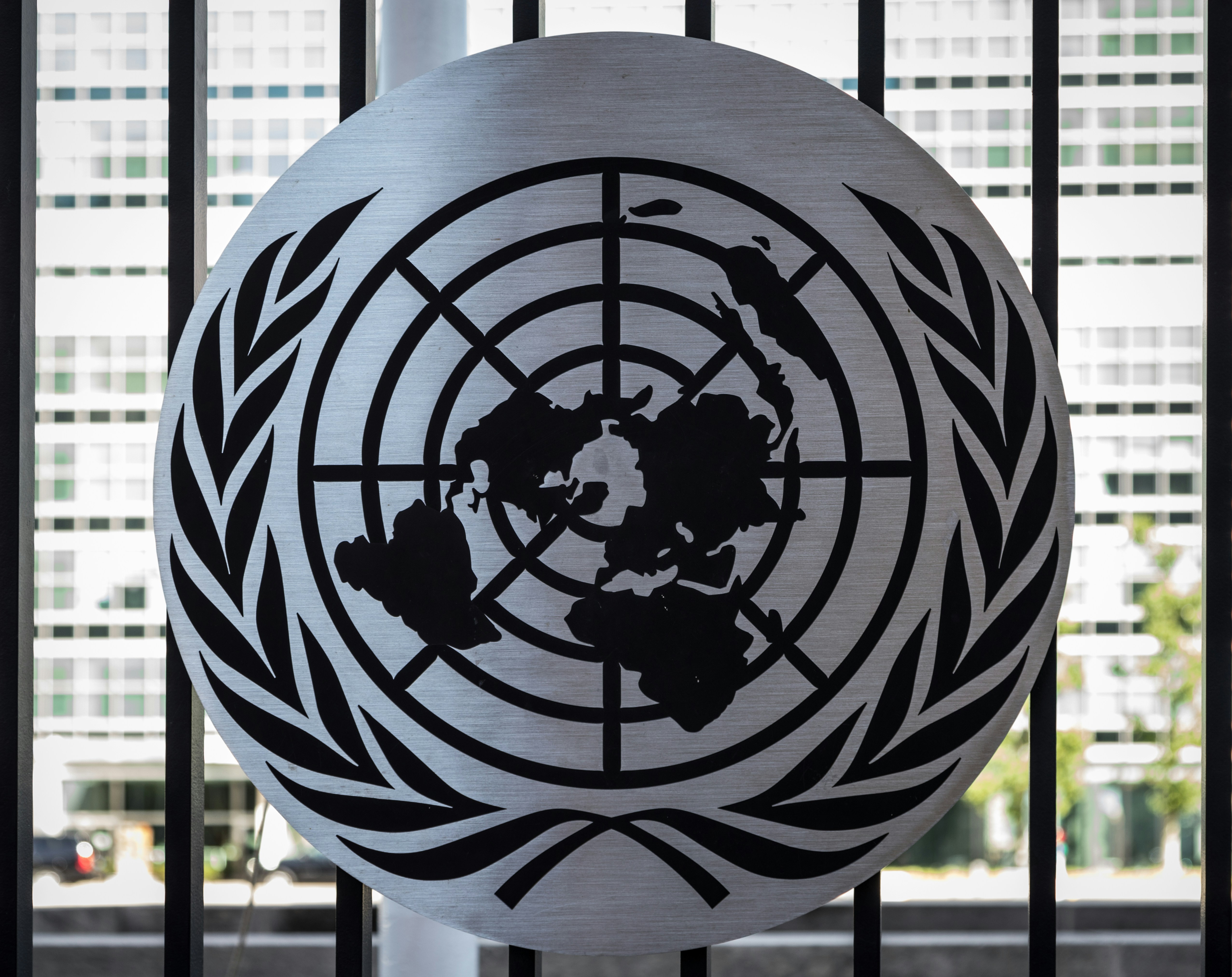
I had always heard of the United Nations – but it wasn’t until I began my Masters in Terrorism and Counter Terrorism Studies at Royal Holloway, University of London that I knew about UNCTED – let alone could imagine working there.
UNCTED is the United Nations Counter-Terrorism Committee Executive Directorate, based in New York. The team there works across a broad range of areas within Counter Terrorism (CT), and Preventing/Countering Violent Extremism (P/CVE), including counter-terrorism strategies, terrorist financing, borders, law enforcement, legal frameworks, human rights and gender, CVE, cyber security, and foreign terrorist fighters (FTFs).
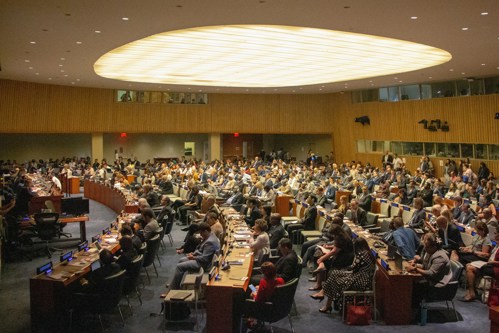
They conduct extensive research, assessments, and monitoring for the UN Security Council – responsible for maintaining global security - and other UN bodies. They often conduct international visits to evaluate the implementation of CT strategies, and formulate recommendations, to different member states, the latest being Cameroon.
Learning the ropes
I found out about a possible internship with UNCTED from one of the MSc course leads. The UN was somewhere I had always wanted to work, given my studies in security and terrorism, which began when terrorists attacked the Bataclan in Paris in 2015.
I also wanted to exploit my fluency in French and English, and Spanish language skills. The official languages of the UN are English and French, but it also uses six other official languages — Arabic, Chinese, Russian, Spanish — in its communications, research, and publications. So it was incredibly exciting. But I was also nervous: the research scope would be broader and the stakes higher than in academia, so I remained focused on absorbing as much as possible to build stronger practical skills.
My internship at UNCTED was an instant immersion into policy-oriented research. I was allocated to the Political and Analysis Research team from day one and hit the ground running. I was tasked with research on Africa’s Sahel and Lake Chad Basin regions amid UN team assessment visits. These regions are a focus for UNCTED, due to the presence of active and violent terrorist groups like Boko Haram, and Jama'a Nusrat ul-Islam wa al-Muslimin (JNIM), a coalition of jihadist groups in the Sahel region and affiliates with al-Qaeda.
But I had to be versatile. My research also covered Latin America and the Caribbeans, and the intersections of Terrorism and Transnational Organised Crime, as well as the Middle East. The tasks I was given were varied: writing an internal report for the UN Security Council, collating findings on the FTF threat and developments, to inform a Security Council briefing on one of the main mandates of the UNCTED. I was asked to take part UNCTED roundtables engaging Civil Society actors across all continents. My language skills were invaluable for translations, communications, and policy research, informing my team in preparation for conference events.
Putting academic skills into practice
It was at UNCTED that everything I learned in the classrooms at Senate House began to make sense, and where my MSc experience proved invaluable. Adapting to the UN’s bureaucratic framework was though a learning curve. I learned about diplomatic sensitivities, and confidential data management.


The remote nature of the internship added complexity, requiring careful coordination across time zones, and implied that my contact with the team was limited to planned calls and team meetings.
I remained proactive by checking in, confirming priorities, taking the initiative to plan calls, in order to build professional relation and requesting mentorship, but the remote settings also allowed me to carry out my tasks independently, skills that were welcomed and appreciated by the team.
My UNCTED supervisor provided guidance on ensuring my findings were clear, neutral, and suitable for member states. Given the UN’s diverse membership, with 193 current members across the globe, I had to ensure my work was free of bias and culturally sensitive, especially regarding terrorism proscriptions, legal frameworks, and counterterrorism strategies. These are different depending on the legal definitions of terrorism, the local contexts and conflicts, so this was a constant challenge.
What next for me?
By the end of the internship I took a moment to reflect on how far I had come. The MSc at Royal Holloway with scholars including Anthony Richards, Andy Whiting, Andrew Silke and Lizz Pearson, honed my critical thinking and research skills, and gave me a good understanding of the relevant policy debates in understanding and tackling terrorism. They specialise in gender, definitions, psychology and cyber – but a key takeaway was learning to ask the right questions, avoid bias, and consider all angles when researching terrorism.
I also had to adapt my writing style — shifting from an academic tone to a more policy-oriented approach. With support and feedback from my supervisor and internship tutor, I quickly learned to write in a more concise and direct manner, using footnotes instead of in-text citations, and focusing less on detailed findings and more on forward-looking conclusions and policy implications, in line with the UN’s style.
My education is not yet over, as I successfully secured a second internship at the International Institute for Counter-Terrorism (ICT), a collaboration in an incoming publication of the Nordic Counter-Terrorism Network (NCTN), and a spot in the 2025 Ambassador Program at the Institute for Economics and Peace (IEP).
The Counter-Terrorism job market is competitive, but persistence is key. Being proactive is crucial when searching for job opportunities. No one lands their dream job immediately; instead, identifying the necessary steps to reach that goal and actively seeking guidance from those already in the field can make a significant difference, and I am already paying that back through the MSc Terrorism Studies alumni network, offering advice to current students.
Despite multiple international security challenges, counterterrorism remains a rewarding field with ongoing demand for dedicated professionals. The MSc gave me a solid foundation for anyone interested in a career in security, and now I am putting that into practice in the field. I’d recommend it to anyone hoping to follow in my footsteps.

Josephine Fefer graduated from the MSc in Terrorism and Counter Terrorism Studies in December 2024, winning that year’s prize for Best Dissertation. She is now working as an intern at the Far-Right Extremism Desk of the International Institute for Counter-Terrorism, after a six-month online internship at UNCTED.







